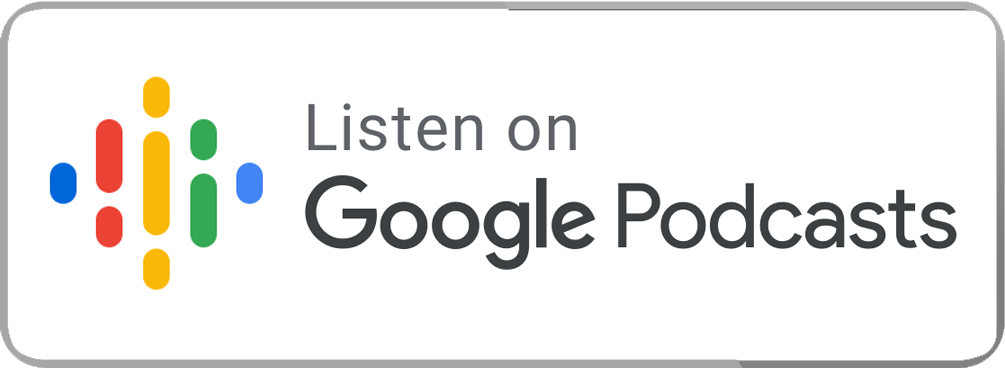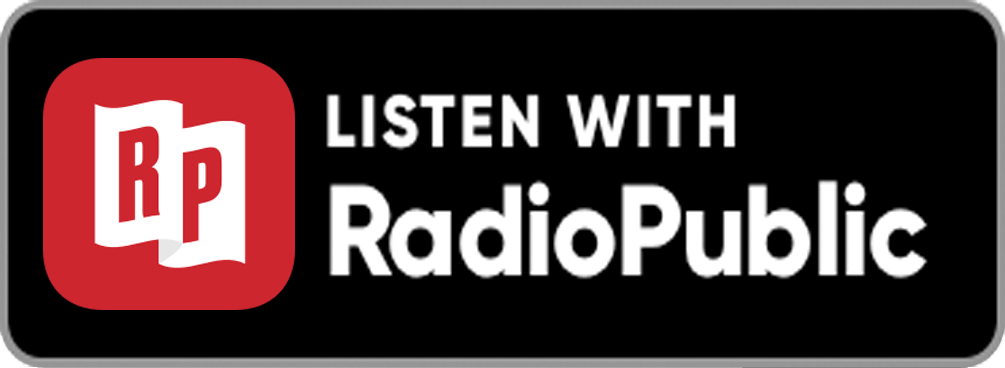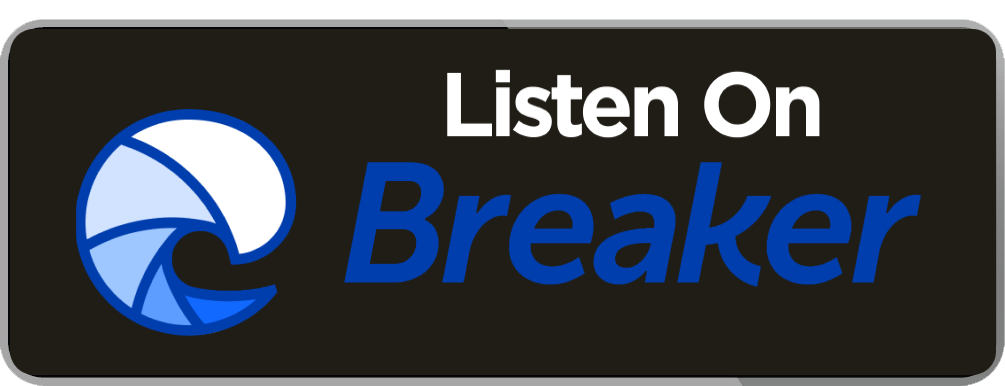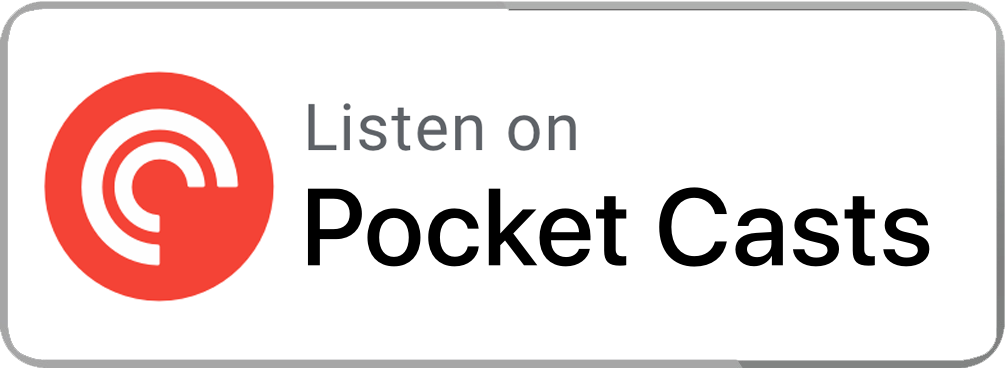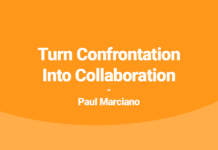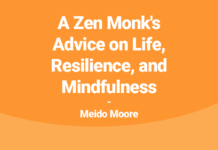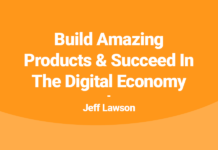Lisa Grimes is the CEO of PurThread Technologies, co-founder of Habergeon and co-author of Remember Who YOU Are: Achieve Success. Create Balance. Experience Fulfillment.
Audio Player
Transcript:
Kevin Kruse: Hello everyone. I'm Kevin Kruse. Welcome to the LEADx Leadership Show, where we help you to become the boss everyone wants to work for. Today on the show you're going to hear from a successful life science executive who says women need to encourage each other, not compete with each other, and how a special object on her desk reminds her of her daily priorities and there's lots of other good advice not just for women.
But first, if you want the managers in your company to truly engage their team members, you have to check out LEADx with coach Amanda, the world's first training and coaching platform built with IBM Watson. Managers who use the LEADx training platform report higher levels of managerial confidence, productivity, and behaviors that drive engagement. Visit LEADx.org and sign up for a demo.
Our quote of the day comes from Joseph Addison. “The grand essentials to happiness in this life are something to do, something to love, and something to hope for.”
Our guest today has over 30 years in the biopharmaceutical and healthcare industries and is currently CEO of PurThread Technologies. She's the co-founder of Habergeon, a boutique management consulting firm, and co-author of Remember Who You Are: Achieve success, Create Balance, Experience Fulfillment. Our guest is Lisa T. Grimes.
Lisa, welcome to the show.
Lisa T. Grimes: Thanks, Kevin. Glad to be here.
Kruse: I'm excited to have you on, and, again, I mentioned in the bio, your new book is Remember Who You Are: Achieve Success, Create Balance, Experience Fulfillment. That's a lot but what's sort of the big idea of the book?
Grimes: The big idea is really twofold. One, it started with complimenting other women beats competing with other women. It really broadened from that. I co-wrote the book with Paula Brown Stafford, and together, we have 65 years met as fierce competitors, determined we did like each other at all, and over time grew to be very good friends and realized life was a lot more fun when we could encourage one another and support one another. And that turned into what started the book. It took us about a decade to actually write because we both were working full time and we're mothers. Long story short, we wanted to encourage people not to feel like they're an island of one, and the stories in our book, as you have seen, there's nothing earth shattering in there, but we share a lot of personal stories and have had so many comments of, “Oh, I've had something like that happen to me. I can relate.” And hopefully that is really what it will do is to help people see that we all share similar experiences. If we're willing to be vulnerable and we're willing to learn from our mistakes, then we can help others along.
Then lastly, our editor was a male and he said, “You ladies are crazy if you think this book is only for women.” So we have a his foreword and a her foreword because we also think it gives a little insight for men to better understand women in the workforce.
Kruse: Yeah. I found that to be the case. I thought it was great. But this is an incredible back story. So you and Paula met roughly how many years ago?
Grimes: 2002.
Kruse: 2002, and where were you both working at the time? What were your roles?
Grimes: We were both heads of global business development for the two largest drug development firms for Quintiles and PPDs. So we were trying to go after the same multimillion-dollar contracts.
Kruse: Right. So when you talk about being competitors, it wasn't that you were in the same company and like kind of rivaling. You were literally corporate competitors and probably even bumped into each other coming and going on big pitches or something.
Grimes: Oh yeah. We first met in the lobby of a major pharma company in New Jersey.
Kruse: I've had that happen many times myself so I can relate. And so it's natural for you to see each other as rivals, and you said it first, you really didn't like each other. Didn't view each other as partners.
Grimes: You know, Kevin, we didn't. We viewed each other literally as furious rivals. Paula's a bio statistician by training. She was smart. She knew her business. I didn't want to go up against her when I was competing for business, and it was a gentleman, Alan, that knew both of us and Alan continued to say, “Lisa, you need to meet Paula. You'll really like her.” I'm like, “Uh. No thanks. I know Paula.” He was doing the same thing to her, and she was like, “No way. I don't want to meet her.” And finally one day he came to me two years later, and he said, “Please just meet Paula.” And I said, “If you promise to never mention her name to me again, I'll meet her.”
Kruse: Yeah.
Grimes: And we agreed to go to lunch, Kevin, and then he didn't show up. So there she and I sat.
Kruse: I think he planned that all along.
Grimes: Oh, I think he did too. He's a smart guy. And we found that the stories we shared, we could complete each other's sentences. That we shared a lot of things, and we certainly didn't divulge any competitive intelligence. But there was a bond and then we quickly realized, the point that you mentioned earlier, how often is that competitiveness geared toward people within your own company.
Kruse: That's right.
Grimes: I mean, we should have been competitors. We were going against each other's companies. But we just found what we felt with each other, we found inside the companies where we were working, and that's not the way it should be.
Kruse: Yeah. I think this is great, and, again, I want to stress your point that this is great advice, not just for women, but for anybody. And my early companies were focused on pharmaceutical training on the supplier side. So similar backgrounds. And at the annual life science trainers and educators network meeting, before all of us vendors would go and compete, I would hold a cocktail party and just invite all of my competitors in. And we found, like, yeah, we're going up against each other on deals, but the pie was getting bigger year after year, and we had more to gain by … And so much in common that we could talk not about competitive things like pricing or anything, of course not. But just sort of industry things. What do you see in the industry? What's going on? How are you doing? And that group still to this day remains pretty close. It's just friendly rivals. It's not vicious like it used to be.
So the first section of your book is about how to achieve success. And so just what are some of the tips that you offer in the first part of the book?
Grimes: Each part of the book is divided into three chapters, and the success part, Kevin, the first chapter is around building your brand. And we started with that because we're all familiar with brands of corporations. We're familiar with the brands of the clothing we like. We have found that when you ask people, “what's your personal brand,” we sometimes get the deer in the headlight look or I don't know or how do you help me figure that out. And so we really give some tips and suggestions of if you don't know what your personal brand is, ask some people, ask some trusted advisors, not just for the good parts, but maybe the not so good parts. I was certainly told that I was very intimidating, and that wasn't a word that I wanted to hear and I wasn't trying to be intimidating but I am highly competitive. I like to achieve the goal I set out to achieve, but I needed to hear that feedback early on to realize how important it was for me to make sure I was pulling my team along with me and I wasn't just racing off to the goal.
Kruse: Right.
Grimes: So tips like that, if you determine that integrity is part of your brand early on when you have someone to say, “Well, let's just fudge this a little bit,” well your answers already made because integrity's part of your brand. So you don't have to sit there and struggle with what am I going to do here. So we just find that it helps. And it was interesting, we both had kind of a fun side of our brand. Mine was hot sauce. So wherever I went in the world, I would have hot sauces waiting for me or shipped to me. Paula's was a little more tasty. It was Krispy Kreme donuts.
Kruse: Oh yeah.
Grimes: But you kind of have something that becomes your signature and people remember that. Then we also talk about delivering X plus and that's really just never letting the words, “This is not my job,” come out of your mouth. It's how can I go above and beyond and really deliver more than I'm asked? We then get into, “well what if I'm not getting paid for that,” well you can work toward that, and we discuss that as well. But just doing that little bit extra whenever you're asked. Then the third chapter focuses on leading with authenticity. And that's really at the heart of the book is, you know what, I can never be Kevin Kruse. I'm not going to be even a half version. I could never be Paula, my co-author. But I can be the best Lisa, and so if I am authentic to how I'm wired and learn and continue to improve the strengths that I have, then I'm going to be the best me. And so a lot of leading with authenticity focuses around building confidence in who you are and bringing your whole self to the table.
Kruse: That's great. Of course, you say it's not only about achievement. How do we create balance? As you said, this could be tough, especially if we are working around the clock, so to speak, as an entrepreneur, or a hard charging executive. I'm a single dad with three kids. Dual income households. It seems like it's getting tougher and tougher. What are some tips to get us back to that place of balance?
Grimes: Great question, and that's our most frequently asked question actually. And we both are moms of two, and we're in dual career households and all of that. Both empty nesters at this point. So we've survived it.
Kruse: Congratulations.
Grimes: Yeah. Thanks. I think the best analogy I could come up with, Kevin, is balance is kind of like a juggling act. And if I could sit here and juggle for you and your listeners, you'd see all the different balls I was trying to keep in the air, and sometimes there are many because there is our family, there's our career, there's our health. If we want some level of exercise. There's our faith, there's our friends, eating healthy. I mean, the list goes on and on. And it's really a matter of prioritizing, and so I always keep, and I think I had shared this with you when we had spoke earlier, but keep a little crystal heart on my desk. And it's my reminder of my priorities. My number one priority is my faith and my family. If I filter my daily decisions remembering my top priority, then I'm going to have much more balance. And then kind of my next ball that I'm juggling is a glass heart, if you will. So it's still a heart, it's still breakable, but it's not as valuable as the crystal heart that I keep on my desk. And that's my career. I put a lot of effort into growing my career and continuously learning and helping others to achieve.
Then we have all sorts of rubber balls, the things that sometimes we can just get wrapped up in. We got to do this or we got to go make sure we've got birthday cakes delivered to the school that were homemade or bought from this special deli. You know what, maybe we can zip down the street to Costco and pick up a great cake and deliver it, and everybody's happy. We want to have a dinner party, but we somehow think it's got to be gourmet when ordering pizza is fine.
Kruse: Right.
Grimes: Then finally I would say we can all wind up spending, at least the people we talk to, a lot of times on lead balls. I usually use a rock to visualize the things that can waste our time, like comparison.
Kruse: Right.
Grimes: Comparison. It's only going to lead to despair. I mean, I doesn't mean we don't look at things and think, “Well, I'd like to get better.” But comparison is the opposite of contentment or guilt and feeling guilty and we have seen this and studies have shown particularly women tend to feel guilty and apologize. Like, “Oh, I'm really sorry it's raining today.” Well, we don't control that. But just coming up with things, “Well, I have to make a choice, a real big client presentation or missing my kid's soccer game.” Well, maybe I've been to six of my kids soccer games and I really have to go to this presentation. But on the other hand, maybe it's my kid's graduation and I'm going to miss the client meeting to do that. So I could go on and on, but the point is if we could drop those lead balls and let them sit on the ground, we'll find a lot more minutes in our day. So it takes us kind of back full circle to filtering through our top priorities. And I think that that's the answer to finding balance, and it's different for each of us.
Kruse: Yeah. So much good stuff there, Lisa, and for our listeners, I want to just underscore a couple of things. I mean, first of all, this idea that you have a physical object on your desk to remind you of what's important, and I've shared I've got something taped to my monitor. And just this idea of … Because we will forget in the busyness. Like to have something in our environment to anchor us, and what I also love is you talked about being very clear on your priorities-faith and family. And having written a time management book, every day I get questions about, “How do I do it all,” and they give a list of 5000 things that they want to do every day. I say, “You can't have it all.” We have the same number of minutes, 1440. The key is to be really clear on your priorities, on your values. So, for me, it's my three to thrive, health, wealth and relationships. And every morning I'm thinking about what does a good day look like in those areas, and those are the things that – I'm a big calendar freak, not a to-do list – that I'm going to calendar time to take care of and then there's the secondary things and the third things.
So the way that you're so focused on like, “Okay. I know exactly my number one and two, and career is three.” Sometimes there is no four. But that's okay. That's okay. Just being thoughtful about it and accepting it, and then like the stress can kind of come down a little bit because we're not trying to do 5000 things at once.
Grimes: Well, right, and I think your point to calendar it, I am a big to-do list person. But I have learned, and we talk about this also in Remember Who You Are is I have a to-do list and I know what I need to … I have a to-do list for what I'm doing the rest of this day. But I calendar things that I don't need to do today, and maybe I don't even need to do this week. But I don't want to forget.
Kruse: Yeah.
Grimes: So I think that's also a good point when you talk about calendaring it. It's putting it in the right perspective. Maybe I do need to take care of Thanksgiving lunch. But that's six weeks away. So I don't need to carry it around just so I can check it off right now. So putting them out there and then glancing at it so that you can adjust.
Kruse: You just reminded me right before we went on the air here, my sister texted and asked me if I would do Thanksgiving this year. And I did not put a note or put it on my calendar. So now I'm going to have to go and do that. You got me going on that one.
So last, let's just speak for a couple minutes about this idea of fulfillment, and I know my experience as an entrepreneur, after I had achieved what I thought was success, I sort of felt a little empty and realized success is a little different than significance. I had to work that out over a few years myself. What's the advice you're sharing on this topic of fulfillment?
Grimes: We all are wired for a sense of purpose, and often when we do achieve a high level of success, I think you're not the only one that is like, “Oh. Maybe this isn't exactly all that I thought it was going to be.” And I think when we can figure out that our purpose is greater than like achieving, oh I don't know, an IPO or achieving a sale of a company or achieving whatever it is that's a business goal is giving back and giving back can take on so many forms. It could be mentoring. It could be being polite to the person at the grocery store that's checking you out. It could be working in a charitable organization. I think one of the things that has always stood out to me, Kevin, is a cancer charity that I work with. We grant wishes. It's sort of like Make A Wish, but it's for cancer patients over 18. And the very first wish we ever gave was to a mother who had never taken any of her children on a vacation, and we sent Yolanda and her three kids on a vacation. She passed away a few months after that, but to this day, four years later, her children who are below the poverty level of income in America, have started selling t-shirts and send checks for every penny they make from those t-shirts back because of the impact of the memory of what they did there.
So that's just one example. There are so many different ways to give back, but we're each one step ahead of someone in some area of our life. If we could just see that and help pull them along and they help pull somebody else along, because we have people that have done that for us. But, again, it's a conscious effort to get up. People I think like we are can get up and it's like, “Alright. This is what I'm going to get done today.” It's like taking the time to reflect, “is there somebody that I can make a difference in their life today,” and doing that thing. Sometimes maybe seemingly insignificant, but just taking the time to do it.
Kruse: It's an incredible and moving story and a great reminder. I often say life isn't about making an income; it's about making an impact. I think your point is great that no matter where you are, you are better off than someone else and have something to offer to someone else. It doesn't have to be money. There's lots of ways to make an impact, lots of ways to help. So that is a great place to wrap this up.
So, Lisa, how can our listeners find out more about your book Remember Who You Are and about your work?
Grimes: Well, our book Remember Who You Are is available really any place you can buy books. So online or book stores. And we also have a website. It's www.Habergeon.com, and I will spell that because it's a little tricky. It's H-a-b-e-r-g-e-o-n.
Kruse: That's great, and we will put links to Habergeon and we'll drop an Amazon link to the book into the show notes so everybody can click and find them online as well. If they're driving as they're listening to this and not jotting it down. Lisa, thank you so much for coming onto the LEADx Show.
Grimes: Thanks, Kevin. I enjoyed our conversation.
- https://habergeon.com/ – Website
- @HabergeonLLC – Facebook
- @HabergeonLLC – Twitter
- https://www.linkedin.com/company/habergeon-llc/ – LinkedIn
- Buy her book, Remember Who YOU Are: Achieve Success. Create Balance. Experience Fulfillment





